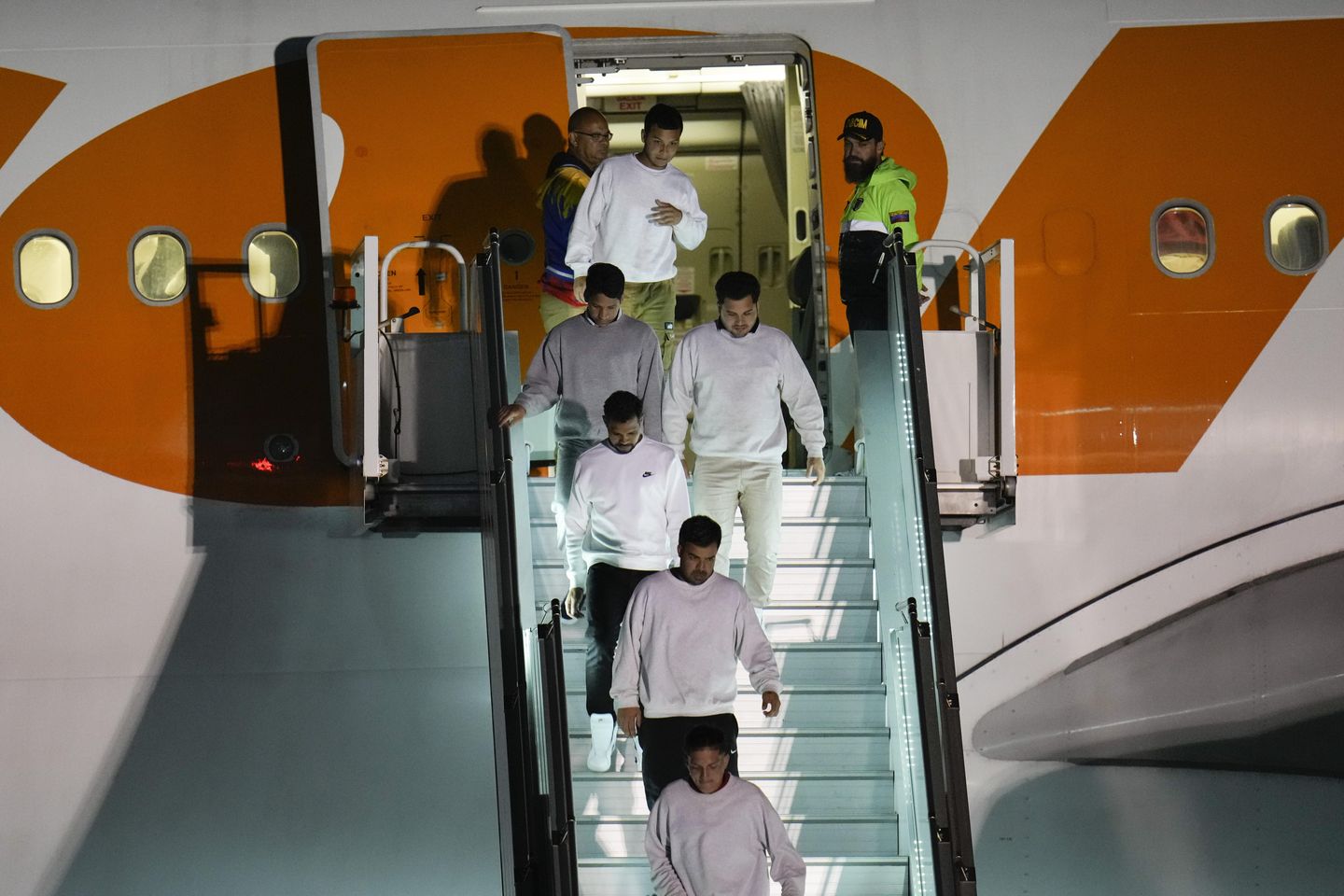
The Trump administration made its final appeal Wednesday to the Supreme Court to block a lower judge’s orders and allow President Trump to resume deporting Venezuelan gang suspects to El Salvador under a law dating back to the 1700s.
Acting Solicitor General Sarah Harris said Judge James Boasberg took a “shoot-first-aim-later” approach to the case, and the longer his deportation blockade remains in place, the more damage is done to Mr. Trump’s presidential powers and U.S. foreign policy negotiations.
“A single district court cannot broadly disable the president from discharging his most fundamental duties,” Ms. Harris told the justices.
The case has quickly turned into a major battle over presidential powers, and Judge Boasberg has become a lightning rod for Republican discontent with the roadblocks federal courts are erecting to the president’s second-term agenda.
At issue are migrants the administration says are members of Tren de Aragua, a Venezuelan gang the U.S. has deemed a foreign terrorist organization.
Mr. Trump, flexing the 1798 Alien Enemies Act, has been pushing for speedier deportations than the regular immigration law would allow, arguing that TdA members are too dangerous to have roaming free — or even detained — in the U.S.
However, Mr. Trump’s opponents say the gang isn’t much of a threat to the U.S., and many of the people Mr. Trump has accused of being members are not in the gang. Some are even its victims, the lawyers argued.
The American Civil Liberties Union, which is handling the case for the migrants, said Mr. Trump has left Venezuelans no chance to protest their designation as members of TdA.
“The proclamation does not provide any process for individuals to show they are not affiliated with TdA and instead authorizes the summary removal of Venezuelan nationals based only on the government’s allegation,” Lee Gelernt, the ACLU’s lawyer, told the justices in his filing earlier this week.
Ms. Harris said the migrants do have a process for challenging their designations through what’s known as “habeas” cases. Those are powerful but narrow legal challenges to the government’s detention decisions.
Issues for the justices include whether Judge Boasberg’s temporary restraining order can even be appealed at this point, and whether the judge acted too rashly or broadly in attempting to stop deportations under the Alien Enemies Act.
Ms. Harris’s brief was filed two days after the administration admitted, in another case, that it had botched one of the deportations by sending a suspected MS-13 gang member back to El Salvador despite a judge’s order that he faced possible persecution or torture in that country.
The man’s family only discovered his deportation after they saw a news photo of a man being taken into the terrorist prison in El Salvador and recognized his tattoos and facial features.
Immigration groups said the botched deportation is the tip of the iceberg when it comes to mistakes the administration is making.
The high court has given no indication when it might rule.
While the Supreme Court looks ahead, Judge Boasberg said he’s intent on finding out what happened with three flights that took deportees to El Salvador on March 15. One of the flights took off after he ordered a ground stop, and two were already in the air but continued on despite the judge’s orders to turn them around.
The Trump administration says the flights were already out of U.S. airspace and so beyond the judge’s jurisdiction.
The Trump administration has invoked the “state secrets” doctrine to shield other information from release.

















